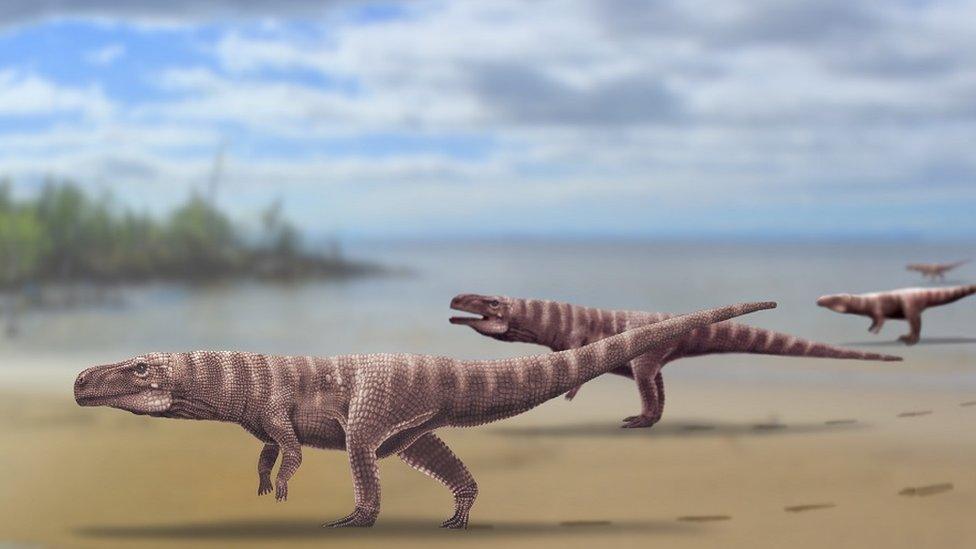An ancient croc-like creature has been discovered
- Published
- comments
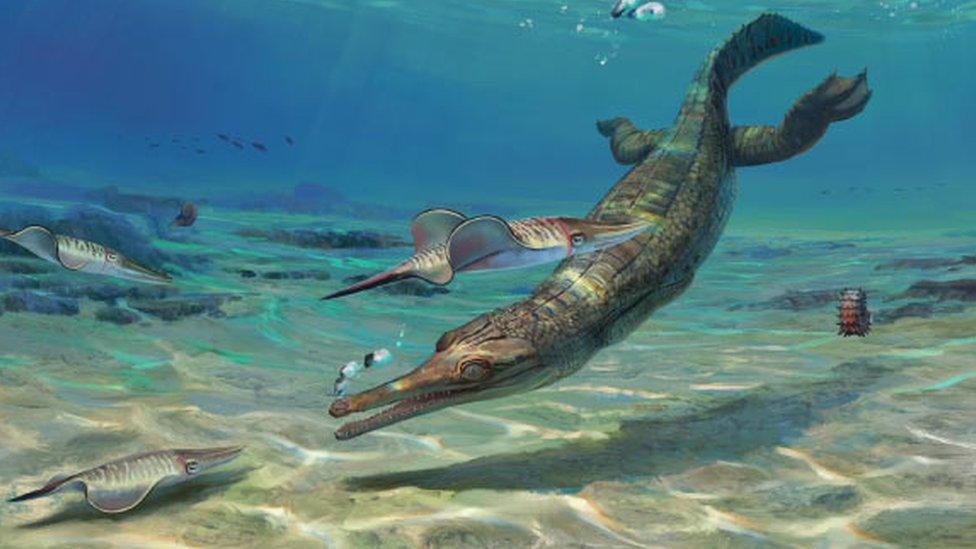
The Turnersuchus hingleyae is thought to have lived around 185 million years ago
Scientists have identified a new species which they believe to be a distant relative of the crocodile family.
Fossils belonging to the ancient animal including part of its head, backbone and limbs were first discovered back in 2017 on the Jurassic Coast in Dorset.
It was named Turnersuchus hingleyae after Paul Turner and Lizzie Hingley who made the discovery and is thought to have lived in the UK during the early Jurassic period around 185 million years ago.
The species has been identified as a new type of thalattosuchian, which were croc-like marine creatures with long snouts. Their diet mainly consisted of fast-moving fish and cephalopods like squid and octopuses.
However, despite their resemblance to the modern crocodile, thalattosuchians aren't actually members of the crocodile family, which includes alligators and caimans.
Thalattosuchians are more distantly related to the large reptiles and it's thought they would been well adapted to ocean life with flippers, tail fins similar to sharks and salt glands to help them remove excess salt from their bodies.
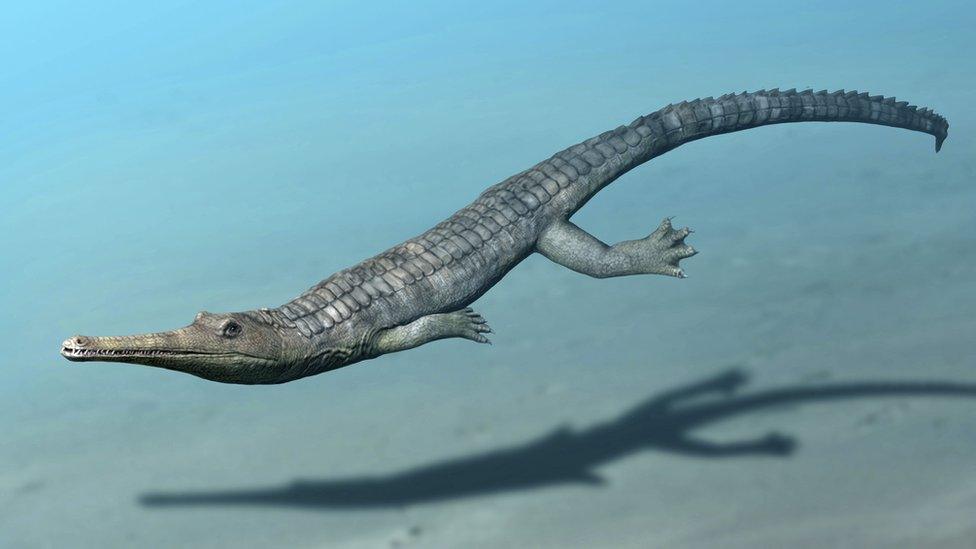
Thalattosuchians are believed to be distant relatives of the modern crocodile family
"Unlike crocodiles, this approximately 2-metre-long predator lived purely in coastal marine habitats," said Dr Pedro Godoy who is a paleontologist at the University of São Paulo.
"And though their skulls look superficially similar to modern gharials [crocodiles], they were constructed quite differently."
Researchers say the discovery of the Turnersuchus hingleyae helps fill an important gap in the fossil record.
"We should now expect to find more thalattosuchians of the same age as Turnersuchus as well as older," said co-author of the study Dr. Eric Wilberg who is an assistant professor at the Department of Anatomical Sciences at Stony Brook University.
"I expect we will continue to find more older thalattosuchians and their relatives."
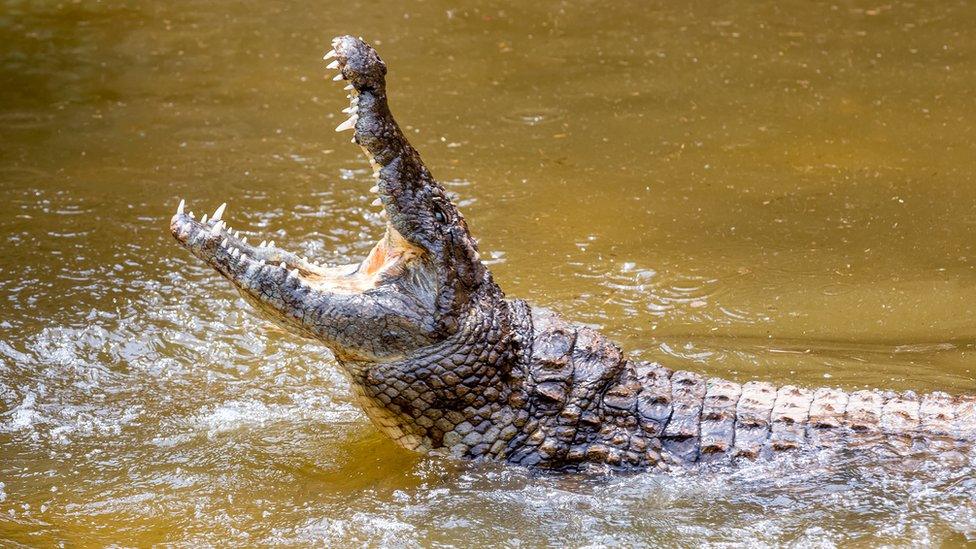
Thalattosuchians had some similar features to crocodiles
The experts say thalattosuchians are likely to have first appeared during the Triassic period, which would have been around 15 million years before Turnersuchus hingleyae lived.
No fossils of thalattosuchians from the Triassic period have been found yet and this has resulted in what's known as a ghost lineage, which is a period of time during which a particular group or species is known to have existed, but there is no fossil evidence yet to show this.
However, he discovery of the Turnersuchus hingleyae is still big news as it's shortened the ghost lineage by a few million years, the experts say.
- Published25 March 2021
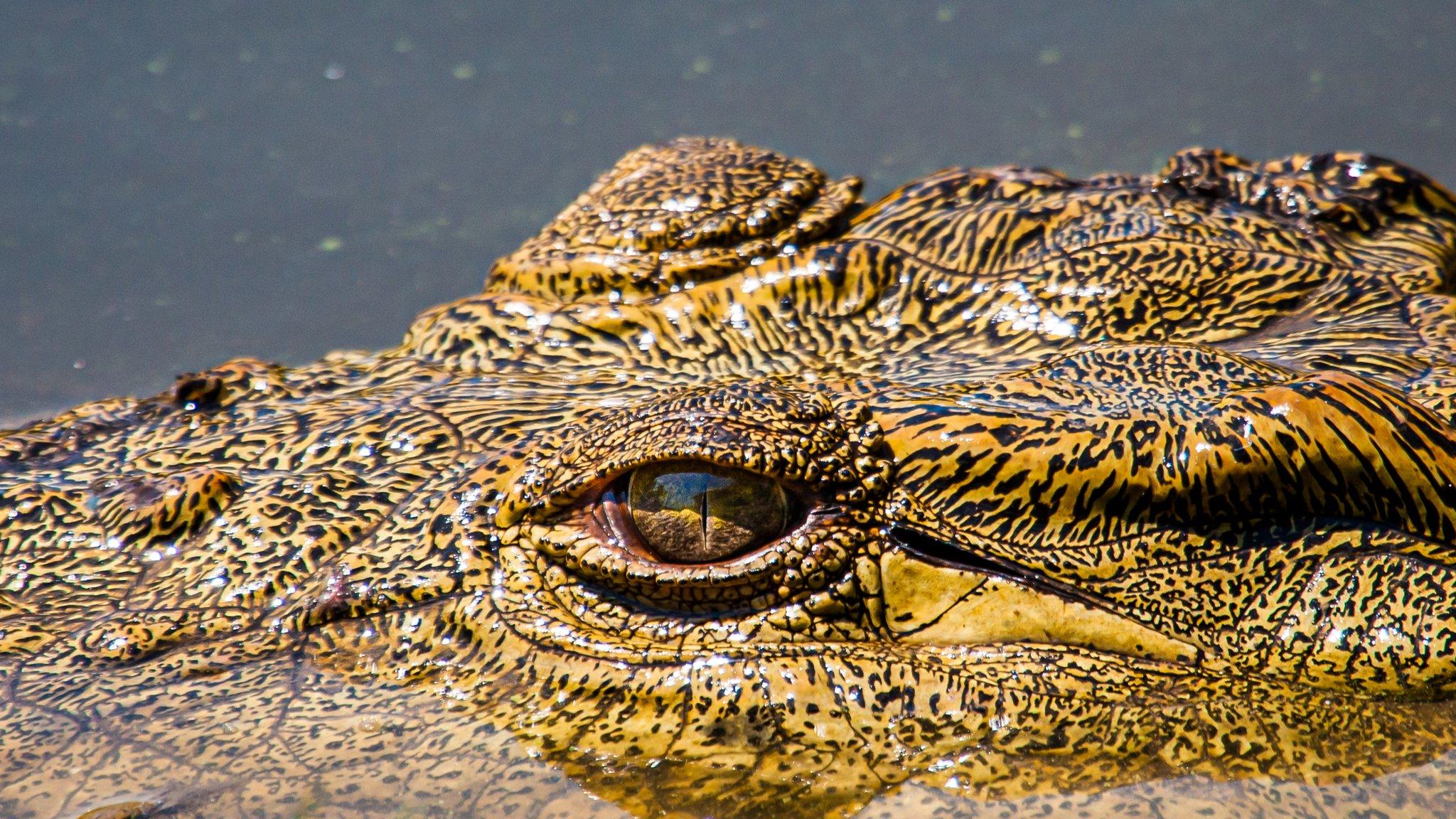
- Published28 April 2022

- Published11 June 2020
